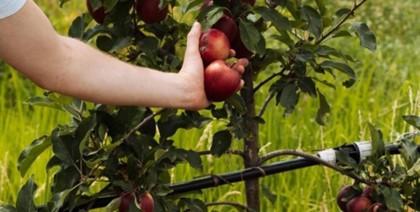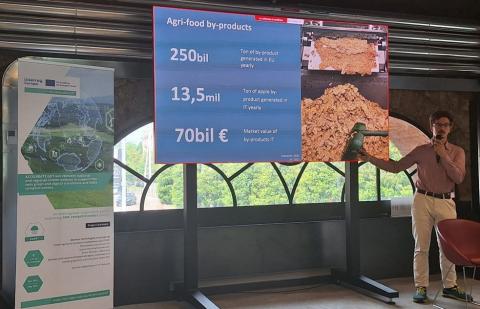Piedmont innovation ecosystem supporting SDGs
On the 19th of June 2024, in Turin, during the Event TUR-IN- a ToUR of INnovation ecosystem from start-up to cluster in the framework of the new EU Innovation Agenda, organized by the Metropolitan City of Turin, all project’s partners had the opportunity to share the good practices of their territories concerning the support to SDGs.
In this framework, the Metropolitan City of Turin, thanks to the presentation of the case study Vortex, represented by its founder Lorenzo Picco, had the opportunity to illustrate the good practice called “The regional innovation ecosystem supporting start-ups contributing to SDGs”.
According to the OECD, it is important for Piedmont region to diversify its economy beyond its traditional strengths in core industrial activities. Innovation policies need also to be coherent with the principles and nature of the 2030 Agenda implementation.
In this context, the selected good practice appears particularly interesting as it aims to provide support to the innovation growth of the Region by also contributing to the SDGs through the financial and strategic support of viable start-up projects. In the framework of the Agenda 2030, the support of the local innovation ecosystem received by the startup actively contributes to the following SDGs:
- 8. Decent work and economic growth
- 12. Responsible consumption and production.
Following the final phase of the EU project AlpBioEco, resulting in eco-innovative business ideas & concepts for SMEs, it emerged a circular business model on which, in 2021, was based the birth of the start-up Vortex. The interesting entrepreneurial concept of the start-up is an example of how clusters can contribute to SDGs through the support they give to SMEs. Environment park was indeed essential to develop the innovative process that led to the creation of a cosmetic product from an industrial agrifood waste.
Environment Park has provided, infact, support throughout the preliminary phase of technical implementation. During a project workshops, Environment Park staff started to work on apple flour, through scientific support (organoleptic characteristics, chemical-physical analysis to characterize the apple flour, pilot test regarding how to use this product in cosmetics,...). Thanks to the Cluster know-how, the start-up was able to access services and all the enabling conditions offered by the rich innovation ecosystem of the territory, mainly: Réseau Entreprendre, INVITALIA, I3P.
Particular relief, therefore, represented the role of Environment Park, which after the EU project, supported Vortex by giving advices and updates on new possible project calls and future activities. Moreover, Envipark realized specific test on his pilot plant for VORTEX with direct compensation.
In conclusion, the multidisciplinary ability of the local innovation ecosystem to support financially, strategically and scientifically the business idea, selected during the European project AlpBioEco represents an innovative example of how economic development and re-industrialisation processes can happen without disregarding the achievement of SDGs goals and moreover, by contributing to their pursue thanks to a new business model, that demonstrates the advantages of circular economy with high social impacts. In fact, through processing powered by renewable energy, the startup has been able to obtain a functional raw material for their production, derived from the alimentary waste from the apple production chain. The start-up was able to measure the positive impacts, compared with the standard production processes of the beauty industry, in terms of lower CO2 emissions (74%) and lower water usage (68%).
This good practice is, therefore, interesting for other regions, because of the following key factors which led to the success of the start-up:
- the capacity of the local innovation system (Environment Park, Réseau Entreprendre, INVITALIA and I3P), to network and provide the complementary knowledge necessary for the creation and growth and development of the start-up;
- the multidisciplinarity of the support received: the ecosystem worked particularly well because different types of skills were put together (young farmer, technical expertise and networking of Environment Park);
- cross-cutting benefits related to the reduction of food waste that is transformed into cosmetic products (environment, sustainability, circular economy, upcycling process).


